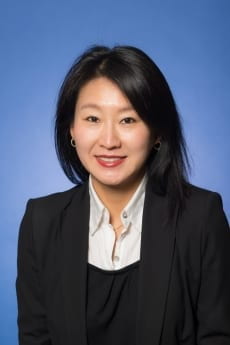12/8/2021 | Foreign Policy During the Joseon Dynasty: Special Lecture with Myung-Gi Han
The Light and Shadow of Foreign Policy Taken by Joseon During the Period of Ming and Qing Dynastic Change
Wednesday, December 8, 2021
4:00 PM – 5:30 PM EST
Hybrid Event
Elliott School of International Affairs
Lindner Family Commons (Room 602)
Virtual via Zoom
**THIS IS A HYBRID EVENT. There will be FORTY (40) first come, first serve in-person tickets for attendance at the George Washington University’s Elliott School for International Affairs. IN-PERSON TICKETS ARE RESERVED FOR GW STUDENTS, FACULTY, AND STAFF. For outside affiliations, there will be tickets available to attend virtually via Zoom.**
**Headsets for simultaneous interpretation from Korean to English will be provided during both the presentation and the Q&A session.**
The geopolitical reality of the Korean Peninsula is grim. It is sandwiched between China and Japan. After the fall of Goguryeo, once a regional power in East Asia, successive dynasties on the Korean Peninsula faced internal upheaval or crises whenever external powers were exchanged or replaced. This is because they were forced to ‘stand in line’ and ‘choose’ between the existing hegemony (覇權國) and the emerging challenging country. And in the process, the Korean Peninsula was often embroiled in war and pushed into the worst possible crisis. In fact, the Imjin War of the Joseon dynasty (1592-1598), the Byeongja War (1636), the Sino-Japanese War (1894), and the Russo-Japanese War (1904) all took place on the same background.
The Byeongja War (1636) is a representative case among them. Joseon, which had maintained its security by complying with the commanding system of the Ming since its founding in 1392, faced a crisis in the early 17th century when the Manchus, who had grown in power, challenged the Ming dynasty. For about 30 years in the early 17th century, when the Ming-Qing change was in progress, Joseon struggled to avoid getting caught up in a war between the two countries. However, it was eventually invaded by the Qing dynasty and suffered the tragedy of surrendering in 47 days.
Why did this happen? Basically, the outbreak of the Byeongja War was closely related to the influence left by the 1592 Imjin War. By examining the political and ideological orientations of the political elites of Joseon from the Imjin War of 1592 to the Byeongja War of 1636, the speaker attempts to reflect on the historical significance of the foreign policy taken by Joseon during the Ming-Qing change.
This event is on the record and open to the public.
Speakers

Myung-Gi Han is a Professor of Korean History at Myongji University. He has a Ph.D. in History (1998) from the Seoul National University. His research and teaching focuses on Korea-China Relations of the Joseon dynasty, and international relations of East Asia. He was a research fellow at Kyujanggak of Seoul National University and co-editor of the magazine Critical Review of History. He was also co-chair of the Committee of Korea-Japan History Studies. His many publications include Imjin War and Korea-China Relations, King Gwanghae, The First and the Second Manchu Invasion of Korea and East Asia, The Historical Review of Qing’s Invasion of Joseon in 1636, and The Critical Biography of Choi Myeonggil (1586-1647). Additionally, he has won the Wolbong Author Award (2000) and the Korean Publication Culture Award (2014).
Discussant

Ji-Young Lee is an Associate Professor of International Relations at American University’s School of International Service, where she holds the C.W.Lim and Korea Foundation Professorship of Korean Studies. Trained as a political scientist, she has written on Asian historical international relations, regional security order and the U.S. alliance network in East Asia, and South Korean foreign policy. She is the author of China’s Hegemony: Four Hundred Years of East Asian Domination (Columbia University Press, 2016). Her current book project, The Great Power Next Door (under contract with Columbia University Press), is a historically informed analysis of when and how China has chosen to militarily intervene in the Korean Peninsula. She previously taught at Oberlin College as a Mellon Postdoctoral Fellow in Politics and East Asian Studies. Outside academia, she served as the Korea Policy Chair and a Senior Political Scientist at the RAND Corporation and was a non-resident James Kelly Korean Studies Fellow at the Pacific Forum CSIS.
Moderator

Jisoo M. Kim is Korea Foundation Associate Professor of History, International Affairs, and East Asian Languages and Literatures. She currently serves as the Director of the Institute for Korean Studies and the Co-Director of the East Asia National Resource Center at GW. She also serves as the Editor-in-Chief of the Journal of Korean Studies. She is a specialist in gender, law, and emotions in Korean history. Her broader research interests include gender and sexuality, crime and justice, forensic medicine, literary representations of the law, history of emotions, vernacular, and gender writing. She is the author of The Emotions of Justice: Gender, Status, and Legal Performance in Chosŏn Korea (University of Washington Press, 2015), which was awarded the 2017 James Palais Prize of the Association for Asian Studies. She is also the co-editor of The Great East Asian War and the Birth of the Korean Nation by JaHyun Kim Haboush (Columbia University Press, 2016). She is currently working on a book project tentatively entitled Sexual Desire, Crime, and Gendered Subjects: A History of Adultery Law in Korea. She received her M.A., M.Phil., and Ph.D. in East Asian Languages and Cultures from Columbia University.







